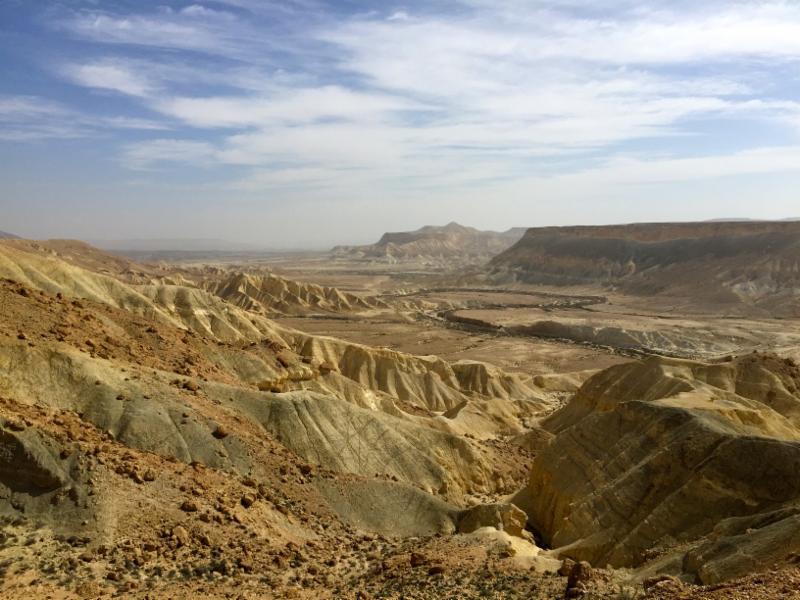
When our three daughters were small, they invited a neighborhood boy to our church’s Friday night children’s program. Jay came, and loved it. The next day he appeared at our back door, face alight, eager to return the kindness. He invited the girls across the street to his house, “to meet my god!” Jay’s family was from India, and he led the girls to his family room where his ‘god’, a statue of an Indian deity, was enshrined upon the mantel, surrounded by candles and other offerings. Now they were even.
The girls came home with wide eyes. “We just saw… an idol!” They wondered what to do … how to pray. “Were there demons in there?” Maybe. What was an idol? A look around our Virginia house revealed no idols. There were books, furnishings, appliances, clothes, toys, musical instruments, even gerbils and fish. There were peonies in the garden, a crabapple tree for climbing, and a third hand, gas guzzling, ocean liner of a station wagon in the garage. But there were no idols. Or were there?
Idolatry seems such a primitive notion. Contemporary disciples have a near impossible time even beginning to relate to it. We are too sophisticated for idols, aren’t we? We don’t relate. We can’t relate. But we must relate.
Idolatry was THE issue for the people of God in the Scriptures, Genesis to Revelation. Do we think that this issue has somehow become obsolete? Not likely. The impulse toward idolatry is timeless and universal, embedded in our hearts since Eden. Our idolatries rob us of our confidence in God’s love, and of our peace of mind … our rest. But rooting out idolatry is not as easy as pulverizing a golden calf (more on that later). How do we even find the idols in our 21st century lives, and how are they dismantled?
Another early challenge faced by the people of Israel in the Wilderness could give us some clues. They were called to follow God’s instructions to feed themselves in the absence of any visible food. While it doesn’t deal with idolatry directly, the story introduces our core motivation for idolatry, and it offers the Sabbath as an antidote.
I’ve written before about the tragi-comedy of God’s people’s inability to wait. The vignettes are numerous, from the birth of Ishmael, when Abraham and Sarah grew hopeless in waiting for the son God had promised, to Peter’s hotheaded swordsmanship in Gethsemane, unable as he was to wait for God’s own glorious vindication of the promised Messiah, soon to follow. There may be no sharper picture of the challenge of waiting, or the dangers of idolatry, than that offered by the instructions surrounding the collection of manna in the Wilderness. If we can think deeply about their motivations, when Israel responds to God’s manna instructions, we may get a clearer picture of our own idolatries.
As we’ve observed before, God seems to drive his people into helpless situations and then ask them to wait to experience or to collect on his deliverance. Helplessness proves to be good for us. It unveils the Father as the real source of life. It is when we are at the absolute end of all we can do to save or provide for ourselves that we encounter God as our deliverer and our faithful Father.

The picture of a million+ people in this desert with no visible source of food provides just such a situation. Without God in the equation, and they seemed to factor him out like the best math whiz, they were all going to die of starvation.
God gives Moses instruction for his people. Manna. Bread. He sends it. They collect it. As much as they need. Every day. Day by day. Simple. Only one stipulation. No hoarding. No over-collecting. No storage. No storage needed! Tomorrow will come, and what they need will be there. Of course, they put this to the test right away, squirreling away a little extra, just in case. (It’s so hard to factor yourself out as an agent of your own deliverance!) But what they found in the morning was a reeking mess, squirming with maggots. Lesson learned, the hard way, as usual.
And just in case proves to be a good tip-off to where some of our idolatries lie.
It’s funny. The very manna they were collecting was the evidence of God’s trustworthiness. They weren’t creatingthe manna, after all, only gathering from the ground the obvious provision of God. But still they could not quiet their instinct toward self-salvation by not hoarding it … just in case.
Just in case … what? In case God changes his mind? Or in case God just changes? Breaks his promise. In case we wake up one morning and find ourselves abandoned in this Wilderness, left alone to fend for ourselves. We’d better DO something. Just in case. This fear, and the just in case self-salvation attempts it inspires, fuel all Israel’s idolatry in the Wilderness and beyond. But the ‘I AM’, as God describes himself to Moses, will never change … will never be different or less tomorrow than he has been to us today. The God who made a pathway through the sea will not fail to feed his people. Elisabeth Elliot says of the God of the Bible, “He has power to prevent what you imagine will happen, and power to do what you cannot begin to imagine.”
Only on one day was it permissible, in fact required, to collect an extra day’s worth of manna. On the day before the Sabbath God’s people were to collect an extra portion, so no one would have to work on the day that was to be devoted to joyful rest. On that night only, nothing spoiled. God required, and provided for, one full day to serve as a loving demonstration of his complete attentiveness.
Observing the Sabbath is included in the Ten Commandments, but it is one the Church seems to give itself complete freedom to ignore. It’s odd. We don’t argue that the prohibitions against murder, adultery, covetousness, stealing or lying are obsolete. Why dismiss the Sabbath so easily? It still stands as a priority for God, and it still serves as a gift to demonstrate his loving and supernatural sufficiency in the face of our idolatries.
Try refraining from all self-provision on the Sabbath. It doesn’t take long to unmask some idols. What? No Publix run? No shopping? No bill paying? No list-making and extra loads of laundry? No getting a jump on the work of the week to come? Just rest (whatever that looks like), enjoy God’s friendship, his Word, and the fellowship of the saints? Take time to remember the One on whom our lives depend? Sit on our hands instead of ‘gather’?
The Lebhars have tried all sorts of ways to build true Sabbath observance into our lives. Many have proved helpful, and in many we have failed miserably. We aren’t lobbying for any new legalism, but aiming rather to learn the Sabbath principle, leaning against our just in case proclivity toward self-salvation, and to make space for God to plant awareness of his care more deeply into our hearts.
We’ve been privileged to know a tribe of college students who observe Sabbath. They deliberately abstain from academic pursuits one day a week, even in intensely competitive academic environments, as a way of staying mindful that it is God who charts their course and opens their future before them, not their own efforts. It is a way of unmasking the idol of academic success.
Idolatries are deeper things than the way our days are organized, but the way our days are organized can be revealing. A friend and I have recently made a pact, meant to help us see this manna truth in operation daily. We will meet with God in his Word before we meet with the Internet. No message-gathering, email-checking, or headline-reading before being alone and face to face with the God who loves us and will be today who he has always been. It’s incredibly hard! I just want to arrange the idols on my mantel … just in case … line things up for the day. But who’s going to be in charge of this day? Gathering ‘manna’ in the morning reminds me to assume deliverance instead of the disaster I so often imagine and which I seek to prevent by my own efforts.
Jesus called himself ‘the bread from heaven’, our true manna in every sense. Because in his death he allowed himself to be bread broken for us, I can have confidence in his unfailing, never-changing, won’t-be-talked-out-of-loving-me, presence. I can gather the gift of his favor day by day. And I can rest.
(A postscript: In visiting our Virginia church years after the mantel god episode, we were surprised to run into our former neighbor, Jay, at a Sunday service. He had traded in his mantel god for the Bread of Heaven.)
